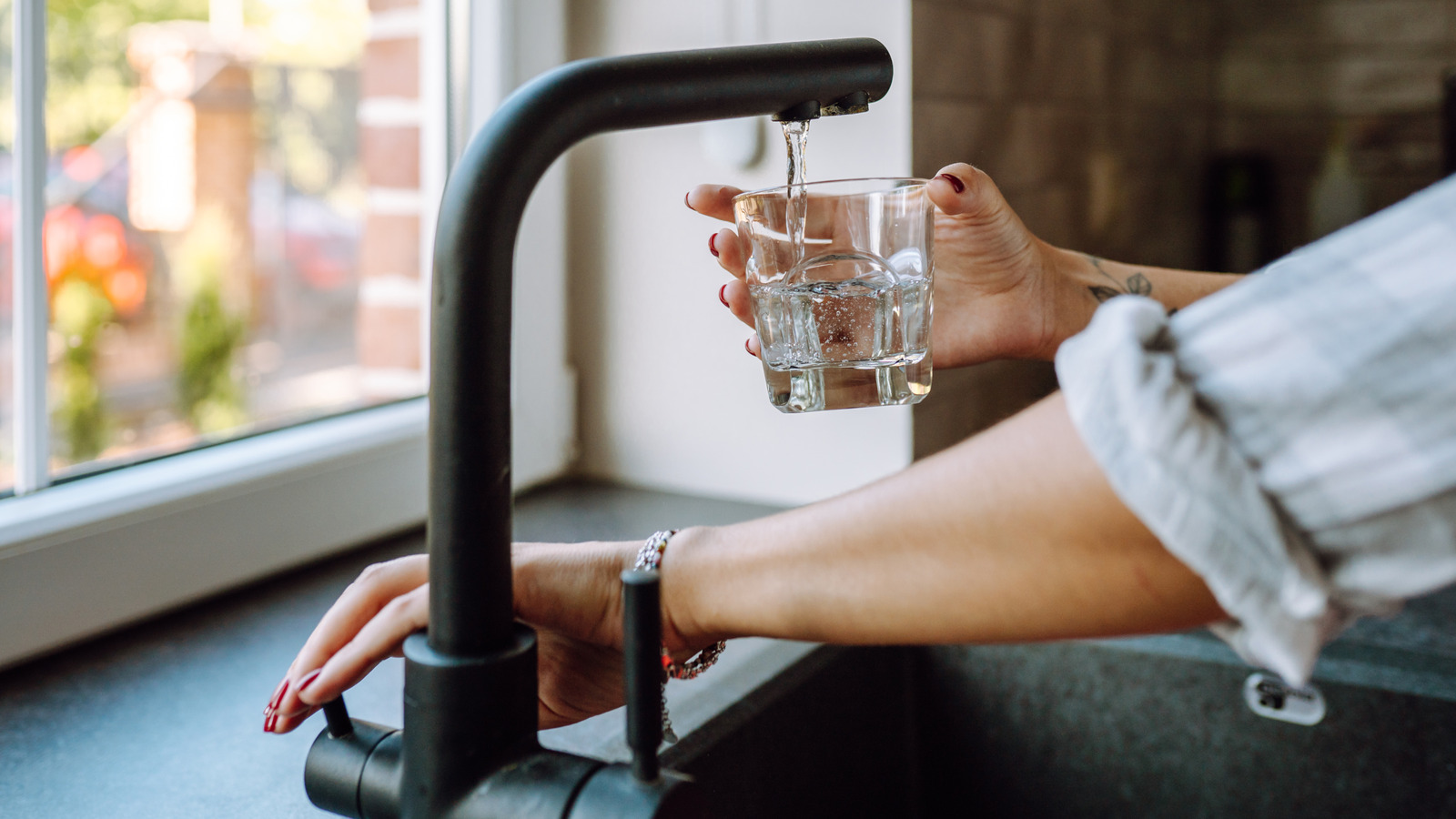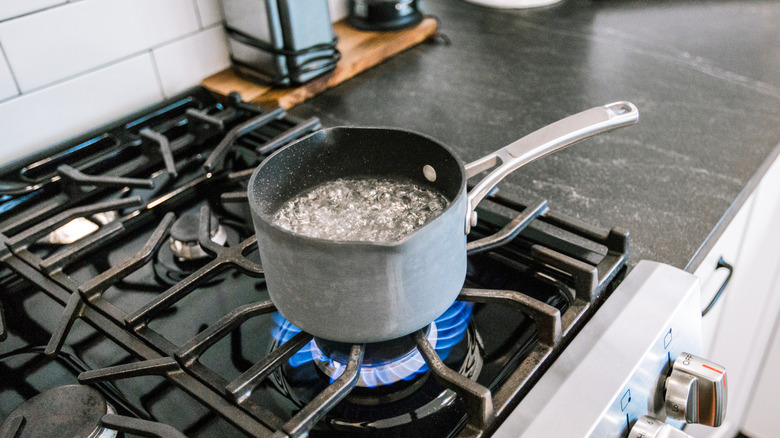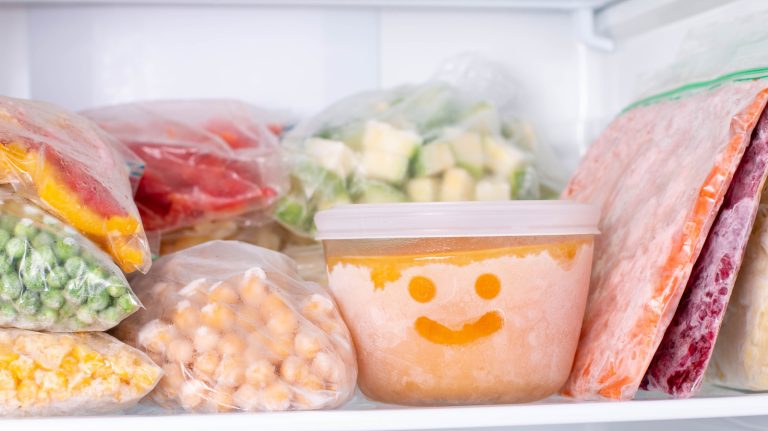We may receive a commission on purchases made from links.
Water is essential to helping us absorb minerals properly, regulate body temperature, maintain top-notch brain function, and a host of other things crucial to our overall health and well-being. No wonder we can hardly survive three days without it. However, not all water is created equal. Purified bottled water isn’t all it’s cracked up to be, as it’s harmful for the environment, gets expensive fast, and isn’t really that much healthier than tap water.
In fact, the biggest advantage of bottled water over tap is that some brands are almost entirely chlorine-free. Reservoirs that provide the water we use in our homes are often treated with chlorine to eradicate harmful waterborne pathogens. However, that means the water we drink and bathe in contains a certain amount of chlorine. Though the amount of chlorine used is regulated by the EPA to limit exposure, its signature chemical taste may make it hard to stay hydrated or kill your delicious homemade sourdough starter before it has time to mature.
Fortunately, there are many easy, affordable ways to remove the chlorine from your water to improve the taste of those fancy coffee beans you saved for. The least expensive methods involve boiling your tap water, exposing it to direct sunlight, or storing it in an open container, all of which will encourage the chlorine to break down and evaporate. Filtration pitchers and sink systems are slightly more expensive but remove the chlorine without extra work.
Simple, cost-effective ways to dechlorinate your tap water
When it comes to saving both time and money, boiling is the most advantageous dechlorination method. Sure, it takes a bit longer than getting filtered water right from the tap, but solar and open-air methods take hours, or even days, while boiling takes about 15 to 20 minutes, at most. Be sure to start your timer when the water is at a roiling boil to reap the most benefits, then store the cooled water in a glass container in your fridge.
Another cost-effective way to dechlorinate your water that’s less labor-intensive is using a water pitcher outfitted with carbon filters, such as the Brita Stream Water Filter Pitcher. Brita pitchers are very effective at removing chlorine from your drinking water, improving its taste and smell. This and similar filtered pitchers are also very convenient if you intend to use dechlorinated water to make your coffee, tea, or in your cooking. Some companies offer complete filtration systems that can be hooked up to your home’s water system, but these can cost thousands of dollars.
Adding a little bit of powdered vitamin C (ascorbic acid) to your drinking water neutralizes the chlorine, though it may make your water taste slightly lemony, which may actually be a great way to trick yourself into drinking more water. To do this, simply fill a gallon-size water pitcher with tap water and stir in about 1 teaspoon of vitamin C. Store the pitcher in your refrigerator as you would any other drinking water. Food-safe, powdered vitamin C or ascorbic acid is sold in many grocery stores or can be purchased online.





